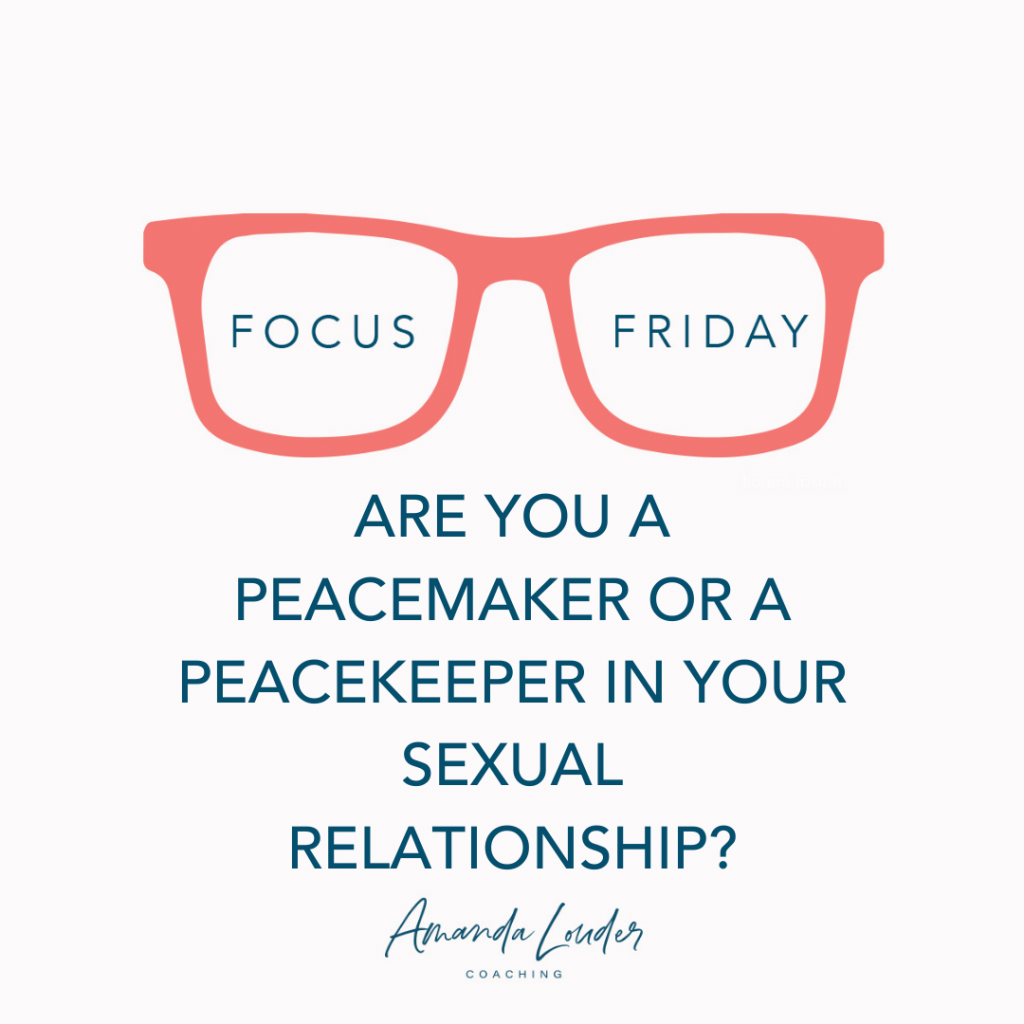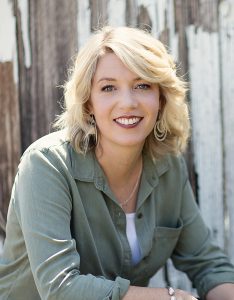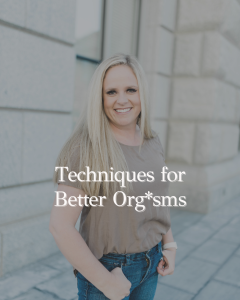
In this episode, I’m talking with Jessica Farmer, a fellow life coach and friend, about how she went from being a peacekeeper to a peacemaker in her life and her marriage. She shared with us when she realized that what she had always been doing, what she thought she should be doing, was not letting her be completely herself. She was able to move from the peacekeeper that she had always been to a peacemaker that let her be who she was inside. Join us for this awesome discussion about how that change has improved everything in her life, including her sex life.
Show Notes:
Follow Amanda on Facebook and Instagram.
Join Amanda’s Private Facebook Group.
Find Jessica at:
jessicafarmercoaching.com/
@jessicafarmercoaching on Instagram
Podcast: When Marriage Gets Hard
Go to https://jessicafarmercoaching.com/free-video/ to receive free training on How To Stop Walking On Eggshells In Your Marriage
Show Summary:
Amanda: Hello, everyone. Welcome back to the podcast. I’ve got a treat for you today with my interview with my friend, Jessica Farmer.
But first I wanted to let you know that the Marriage Matters workshop has been rescheduled to Friday, June 10th, and it’s still going to be in Layton. Prices are the same, BOGOs the same, FRIENDSFOREVER, all one word, discount code at checkout to get buy one, get one free. This is going to be an amazing workshop with me and my fellow life coach and friend Crystal Hanson, who’s a marriage coach. So make sure you go and get your ticket today.
If you’ve been wanting to go to the couple’s retreat and you’ve been putting it off, don’t wait any longer. We are more than half sold out with still six months to go. Tickets are going fast so get your ticket. Go to my website, amandalouder.com, click Work with Me in the menu and then Couples Retreat. Now let’s get to the interview.
Amanda: Welcome to the podcast, everyone. I have my friend and fellow coach Jessica Farmer here to talk to you today. Welcome Jessica.
Jessica: Hello. I am so excited to be here. This is so fun.
Amanda: Okay, so why don’t you introduce yourself to my audience?
Jessica: Yeah, like you said, I’m a coach. I am a marriage coach, and I work specifically with people who are married to somebody who is struggling with their mental health or has a diagnosis. So everything from anxiety and depression to ADHD, OCD, bipolar, all of the things.
Amanda: And what are you mostly helping? I mean, marriage, right? What are you mostly helping with?
Jessica: Well, most of it is this differentiation, right? Because when my clients come to me, usually they’re really feeling controlled by their spouse’s illness, you know, whatever it is, they’re saying, It’s running my life. I’m having to carry all of the burdens of the running of the family, you know?
And so they’re feeling very, very out of control of what their experience is and that shows up in the relationship, right? Like there’s a ton of resentment and anger and frustration. And so we just kind of, we pull back. And figure out, okay, like what’s mine to control, what’s his to control, and how can I show up in the relationship from like a real grounded and differentiated place? Because, really like, that’s what creates a partnership marriage, and ultimately love and intimacy. Like that’s where it’s the best.
Amanda: And we’re all about love and intimacy here.
Jessica: Yes we are.
Amanda: And you coach on this because it’s your life, what you’ve lived?
Jessica: Yes. Yeah, this was my husband the first 10 years of our marriage. We’ve been married 18 years, and about the first 10 years it was really bad. We did not have a very good time together that first 10 years because my husband, we didn’t really know it at the time, but he was very deep in anxiety and depression. And he was totally functional outside of the house. So that’s why it kind of took us a long time to figure everything out.
And so we, what ended up being the catalyst for all of it is like, because of his anxiety and depression, I got into some seriously codependent patterns where I was trying to manage everything for him. I was trying to fix everything. And I was like, if I can just like, make sure the kids aren’t going to be loud, then he won’t get anxious. And he’ll like, engage with me more. And so I was just trying to control him. I was trying to control the situation just trying to survive. Right? I was just trying to keep our marriage afloat. But it got to the point where I started having panic attacks all the time.
Amanda: Yeah. You can totally understand that.
Jessica: And so that was really kind of the catalyst, because I was like, this is terrible. This is not working. And so I went and got help and it was just kind of like a fog lifting. I could see, oh my gosh, this is what’s happening with him. This is what’s happening with me. This is how I’m contributing to the problem. This is how we’re going to fix this, right?
And so it really was like that process, like I talked about at the beginning, of pulling back and differentiating and saying, okay, this is what I’m in charge of. This is me being my best self is really all that I have control over.
He’s going to have his illness and he’s going to do what he’s going to do, but I can show up in the relationship in a way that I want to, which before I definitely wasn’t. I had just kind of given away all of my power and all of my, really like my sense of self. I had totally lost that in his illness, although at the time we didn’t really know what it was.
Amanda: Well, I think that’s a really good transition to what we want to talk about. Becoming a peace keeper versus a peacemaker. You were trying to be a peace keeper, but never feeling peace in those 10 years, right? And having to make that switch and what that involved. So tell me a little bit about that.
Jessica: Yeah. So I think the term peacemaker gets such a bad rap, right? Because we all want to be empowered and we want to be strong and, you know, and we kind of see being a peacemaker as the opposite of that. But, in my experience and because I’m an Enneagram 9, which is the peacemaker, I’ve had to do a lot of mental gymnastics about this, trying to make that label feel good to me. And as I’ve been researching and looking in scriptures and from a spiritual standpoint as well, trying to understand, okay, like what actually is a peace maker and how do I do that without totally letting go of my sense of self, right?
Amanda: Yeah. For sure, for sure. There’s the scripture, Matthew 5:9, “Blessed are the peacemakers for they shall be the children of God.” And you’re like, okay, so if I want to be a peacemaker and be numbered with His children, then I’ve just got to completely forgo my desires and what the things that I want in order to keep the peace in my marriage and in my relationship and in my family. And I know I don’t tend to do this as much in my marriage. I know I tend to do it with my extended family a lot, but I think it has huge ramifications in marriage and specifically in the sexual relationship.
Jessica: Oh my gosh. Yes. My husband and I have been trying to resolve this in our relationship for 8 to 10 years, you know? Only just in the last couple of years have we’ve started to address it in our sexual relationship and, oh my gosh, it’s been like a game changer.
Amanda: Yeah. Okay. Tell me more.
Jessica: Yeah, well, as I’ve been doing a lot of research on this, and trying to figure this out for myself, I realized the way most of us think about peacemaking is actually peacekeeping, right? It’s that I’m going to sacrifice myself in order to keep the peace. And I’m full of raging resentment afterwards.
It’s kind of like, I call it like the river of resentment that’s just kind of flowing underneath everything. Even though on the top, it looks very peaceful, it’s just this raging torrent underneath, which can be really destructive.
And the thing that comes to my mind is in the Hunger Games, the Peacekeepers are not nice people. We think that we’re being really nice, but it can be really destructive. And like you said, if we lose, we sacrifice our inner peace when we’re doing that. And so as I’ve been trying to think, okay, so then if that’s not being a peacemaker, because I don’t believe that that’s what Heavenly Father and Heavenly Mother wants for us. I’m positive that that’s not what they want for us, so, okay, so what is a peacemaker? And of course Christ is the perfect example of what being a peacemaker is.
Amanda: Maybe we need to go back to what a peacekeeper actually looks like when it comes to the sexual relationship before they do that. I think that would probably be before we move into that. Because I think both are important, but let’s stay with the peacekeeper for just a second. Okay. Not like Hunger Games, not nice people. Right. All the resentment. What else?
Jessica: Yeah. For me, this showed up as very much like being the good girl. And my job is to be like the moral compass in our relationships and which basically turned my husband into the bad guy, right? If I’m the good girl, then he’s the bad guy. And it felt very unsafe for me. And so I was very quiet. I never even tried to explore what I actually wanted in our relationship. It just squashed everything in my own personal sexuality. It was nothing.
Amanda: Yeah. And it leads to like a really immature way of viewing your sex. Your sexuality is completely revolving around your spouse’s sexuality instead of being a combination of the two of you together. Right? And also I think, I lost my train of thought. But also, like you said, the moral compass. We’ve kind of been conditioned to believe that men are so destructive with their sexuality and so it’s our job to be that moral compass and keep them in check and not let them go on the slippery slope to hell with sex, right?
Jessica: Yeah. And then dragging me down with him. You know, I really felt that way that I was the anchor for us and if I just let him do whatever he wanted to do, then we were gonna be in hell together. So it brought this real kind of danger to our relationship, which was really destructive.
Amanda: Yeah. And I’ve talked about this specifically on the last few podcasts and stuff where, when sex is dangerous, our body is made to keep itself safe at all costs, which means completely shutting down sexuality, right? The sex is not safe, so I can’t engage and going into stress responses, fight flight, freeze, and fawn, and go on trauma response. That’s not a good thing when it comes to sex. Sex is about safety, security, freedom, agency. And you cannot do that when sex is not safe.
Jessica: Right. Well, and the funny thing that happened with me is it was like, again, I didn’t know this really was going on at the time, but like getting some distance, I can see it. Like I was able to, I was able to orgasm and as long as it was within the framework that he wanted. And so it became like this very people-pleasing thing where he wants me to orgasm, so I’m going to orgasm and it wasn’t about me. And, and so it was like, you know, if you would ask me five/six years ago, if we had a good sex life, I would be like, yeah, that it’s fine.
Amanda: I’m having orgasms. It’s fine. It’s good.
Jessica: Yeah. But it really was not about what, I wouldn’t even let myself see or explore, what do I like, what do I want outside of his framework. Does that make sense?
Amanda: Yeah, totally. Okay. So moving from peacekeeper to peacemaker, more like Christ was the peacemaker. Let’s move there.
Jessica : Yeah. Well, I like to think of it as creating peace, right? Instead of just shoving things down so that there’s this false peace on the surface. It’s like, Okay, we’re going to be active and we’re going to create peace. We’re going to create peace in our relationship, which is where we get hung up. It often creates conflict, right? Being a peacemaker does not mean that you are avoiding conflict.
Amanda: Right. Which I think, especially for those Enneagram 9 who want to avoid conflict at all costs, right? And like I say this in my own relationships, my husband is an Enneagram 1 with a wing 9, and so that definitely plays in. He wants to people please, he wants to, he wants to avoid conflict and having both of us having been through divorces, he wants to avoid that at all costs, so I see often how he ends up not saying and doing some of the hard things that need to be said in order to keep peace in our marriage which I think actually causes this turmoil. We have to be willing to do the hard things to create that peace, right?
Jessica: Yeah. I like to think of it like this: Lately I’ve been daydreaming about remodeling our house.
Amanda: Can I talk, can I talk you out of that? Because I’ve done that.
Jessica: Ultimately why it’s a daydream and I haven’t actually done it is because it just stirs everything up, right? You’re knocking down walls. You’re trapped. It makes a huge, huge mess. And hopefully the end product is going to be more functional and more aesthetically pleasing all of those things, but there is like this huge river of misery in between, you know, and that’s hard to manage, but it’s that goal of creating a real peace, a real functional and healthy space in your relationship that you’re going for.
Amanda: Yes. I agree. And no, we didn’t live in our house when we were remodeling it. We bought it. But I would not want to live in it and remodel at the same time, but the end product is totally worth it, right?
Jessica: Right. Yeah. We see this with Jesus Christ, right? He was not about peacekeeping. Like he was willing to burn everything down. Even in His relationship with His women disciples, right? That was culturally not okay. That was not Him keeping the peace. That was him being really disruptive. And so being that peacemaker and using Him as the example, that perfect example is being proactive and being willing to disrupt things in order to create something better.
Amanda: Yes. Well, it’s that same concept that we talk about all the time. The discomfort for the sake of growth.
Jessica: Yeah. For sure. Yeah.
Amanda: Okay. So let’s take this back to the sexual relationship. So in order to be a peace maker in a sexual relationship, what did that look like?
Jessica: Well, first of all, it was learning to completely let go of that idea of me being the moral compass, which felt terrifying.
Amanda: Yeah. Like to bring up that anchor, right? Just let the wind take you, your desires take you wherever it wanted to go.
Jessica: Yeah. It really did feel very unsafe at the time. But the funny thing was, it did not take long before I was like, oh my gosh, this is so much better.
Amanda: Well, that’s because then you have that freedom. And that is essential. You have the agency and you have the freedom, which is so, so essential to a good sexual relationship.
Jessica: Well, and I felt my husband and I were having a conversation about this because now we talk about it all the time. And so we were talking about it and I was like, you know, I just feel more like me. I feel more like myself, which totally shocked me because I thought I genuinely thought like that that moral compass, that was me, you know, I am a peacemaker.
Amanda: Yeah. But that was you following the shoulds. Those things that have been put on you instead of you embracing your sexuality and your agency to create what you actually want.
Jessica: Yeah. 100%. And it’s kind of forced me to actually look at myself and say, okay, this is what I want. And what I want is important and being willing to go to the mat for that and advocate for myself, which I totally was not doing before. And so it’s really helped with my confidence and understanding of myself.
Amanda: Which, I mean, it’s so funny. You know, if you had said, oh, if you would just like, embrace your sexuality, things would be so much better. You’d be like, nope, I’m good. Thanks.
Jessica: I’ve embraced this as much as I want to.
Amanda: And that’s what I see a lot of times. They’re saying, Okay, I know something’s missing, but it’s not the sex part. It’s not my sexuality. That’s not what it is. And then we do this work and they’re like, oh it totally was.
Jessica: Yeah. I know I’ve heard you talk about this, but it’s like, okay, we get all of these benefits. We’re looking at ourselves, we’re creating more confidence, we’re advocating, we’re becoming more empowered. And by the way, our sex life is good too. You know, it’s kind of like the by-product. We want to focus on everything other than that.
Amanda: And when you can start advocating for yourself, creating the sexual relationship that you want, being able to use your voice, that translates to every other aspect of your life.
Jessica: Oh, 100%. One thing that my husband and I started doing is in this whole journey, but particularly around sex, is we have this policy of radical honesty.
Amanda: I love it.
Jessica: Yeah. Where it’s like okay, I’m going to tell you exactly what I mean, there’s no games. And I’m going to trust that when you are talking to me that you are telling me exactly what you mean. And that has been huge because it’s made communication so much easier because we’re not trying to read each other’s minds or think, okay, he says this, but what does he really mean?
Amanda: Or wondering, does he actually like what I’m saying or is he just accommodating me. Right? But that’s part of the radical honesty. If he doesn’t agree with you or doesn’t like it or something, he is going to say what he really feels as well.
Jessica: Yeah. And it’s so funny because I was talking about this concept of radical honesty and I got a comment back from somebody who said, Are you trying to destroy marriages? I was like, Um, no, but I am trying to change the paradigm here.
Amanda: Exactly.
Jessica: Because if we’re not being a hundred percent honest, that’s us falling into that peacekeeper role, which is just going to lead to resentment and anger and frustration.
Amanda: Well, and not true intimacy. Intimacy is knowing your partner in and out, whether you agree with them or not. And that differentiation peace is like, you can be different than me and we can still be okay.
Jessica: Yeah. I’m allowed to be a hundred percent me and you’re allowed to be a hundred percent you and we can still coexist.
Amanda: Yes.
Jessica: And even thrive.
Amanda: Yeah. We don’t have to be the same. I think that’s one piece that a lot of people miss, I love this quote by Esther Perel. Let me see if I can find it real quick. She says, “There isn’t one way to have a marriage or sexual relationship. When you have a very narrow view and your relationship doesn’t fit, there’s only one way to go: Out.”
Jessica: Oh, that’s good. I haven’t heard that one before.
Amanda: And so, a lot of times we’re like, well, if I feel this way and they don’t feel this way, then where does that leave us?
Jessica: Yeah.
Amanda: And it leaves you exactly where you want to be – you being open, honest and having an intimate relationship, and you may not do what you want, but you at least are honest with each other and know each other.
Jessica: Yeah. And again, bringing it back to me allowing myself to be 100% me. And if my husband wants to participate in that, awesome. Then, we can begin. Right? That’s where it starts.
Amanda: Right.
Jessica: But if you’re kind of caught in this pull of, I’m going to be on my best behavior and he’s going to try to be on his best behavior or worst behavior, right? We’re projecting this idea for our spouse of who we want them to think that we are. And it’s just never going to create real concrete intimacy or resilience in your marriage.
Amanda: Yeah. And it’s not creating the piece that you actually want.
Jessica: Yeah, because when we’re searching for peace, that’s the picture that we want. The we can handle anything that’s coming at us because and I feel like I’m being my best self in our relationship. That’s what the picture of peace that we want is, not just the smooth waters.
Amanda: Yes. So good, Jess. I love it.
Jessica: I could talk about this for, well, ever.
Amanda: You do talk about these and other topics, right? On your own podcasts.
Jessica: Yes. It’s When Marriage is Hard with Jessica Farmer. We go super deep into all of this stuff. Codependency, people-pleasing, all of the things.
Amanda: Awesome. And where can they find you?
Jessica: Yeah, it’s @JessicaFarmerCoaching, pretty simple, on Instagram. And that’s where I am most of the time, either on my podcast or Instagram.
Amanda: Awesome. And what does coaching with you look like?
Jessica: I work with you one-on-one and I work with couples. We work together for about six months and we start getting to that place of peace. We work on creating that, confronting the conflict, pulling out the sledgehammer, and building the real kind of peace that we want.
Amanda: Awesome. Well, thanks so much for joining me.
Jessica: Oh, thank you for having me. This is so much fun.




